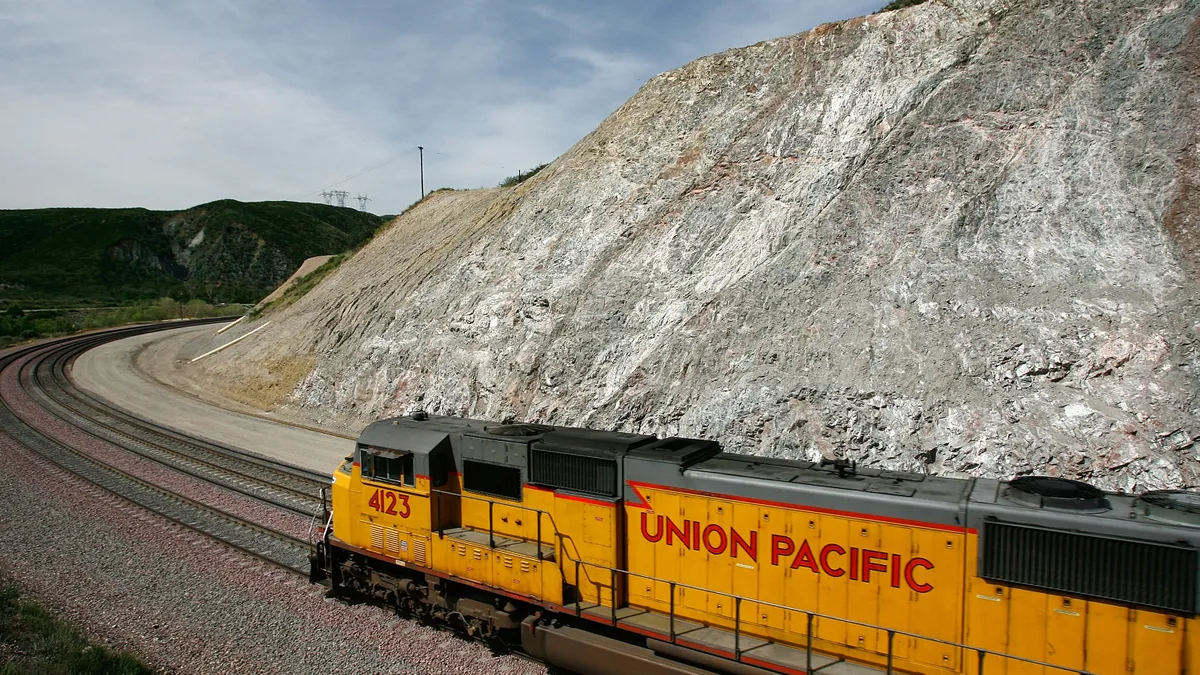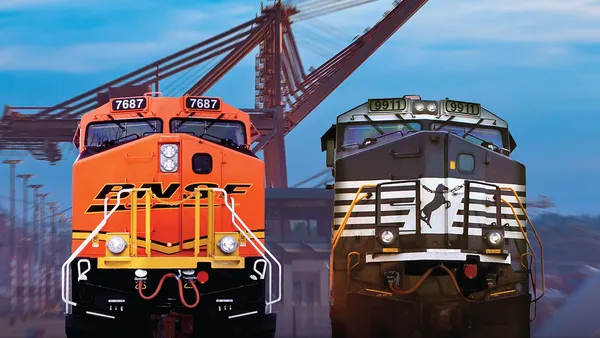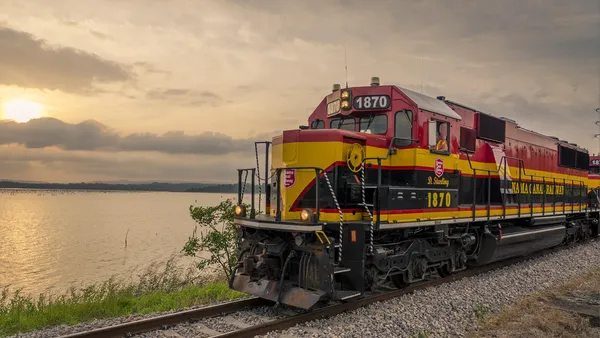Dive Brief:
- Union Pacific will suspend service between the West Coast and its Global IV gateway in Chicago in an effort to improve congestion at the inland intermodal terminal, a spokesperson for the railroad confirmed. The suspension will begin Sunday and last a week.
- The Union Pacific spokesperson said that the railroad is dealing with "significant congestion at our inland intermodal terminals, most notably in Chicago."
- "We believe this change will allow the transportation supply chain to begin working off the backlog of Global IV destined trains, while freeing up railcar assets to support import loading needs on the West Coast," the spokesperson said. "We are working closely with the ocean carriers and collaborating wherever possible to improve the health of the supply chain."
Dive Insight:
The decision to halt service between the West Coast and Chicago comes as the supply chain is dealing with a significant amount of congestion at just about every node. And without containers moving inland as expected, experts expect this decision to temporarily worsen congestion on the West Coast.
"The system is a flow-through system, so anytime things stopped flowing, you know, it's like you're putting a dam up in a river," Larry Gross, founder and president of Gross Transportation Consulting, said Thursday.
The West Coast has been dealing with its own congestion issues for months at this point due to high import volumes that have pushed up dwell times. And it has not shown any signs of improvement in the most recent figures released by The Port of Los Angeles.
"The dwell time on container terminals continues to hover near its peak of five days," Port Of Los Angeles Executive Director Gene Seroka said in a media briefing earlier this week.
The congestion has been impacting rail services for months at this point. J.B. Hunt warned in December that rail ramp congestion in Chicago and Southern California was slowing the movement of intermodal traffic for inbound and outbound loads.
Still, port officials and ocean carriers agree that Union Pacific's decision will help to alleviate the issues in Chicago.
A spokesperson for HMM said they do think the move will temporarily worsen the state of congestion in California. But, they added, "We expect a week-long rail suspension of UP railroad can contribute to alleviating the current congestions and backlog of the Chicago region."
And a spokesperson for The Port of Long Beach said the facility recognizes that Union Pacific is making the decision to improve the flow of cargo in Chicago.
"It's not unheard of for railroads to put some routes on pause in order to catch up," Lee Peterson, the media relations manager for the Port of Long Beach, said in an email. "We're confident that the supply chain will adjust and overcome any backlogs."
A big issue for the operations in Chicago has been a lack of chassis. Inland port locations are either wheeled or grounded — which just means that the container either sits on a chassis or the ground. And Global IV relies on chassis, Gross said.
"Folks have been hanging on to chassis and boxes longer than normal ... which has had an effect of reducing the velocity of the chassis at the same time that volume has been strong," he said. "And so they basically have been running out of chassis, which is a big problem operationally."
Gross said that they don't have straddle carriers or other tools that other facilities might have to move containers without a chassis. Without the chassis it's hard to unload a train when it arrives "because they're not typically running the grounded operation," he said.
But Gross also said that railroads' difficulty dealing with congestion underscores the impact of their decisions to reduce infrastructure resources under precision scheduled railroading.
"It appears to me that necessary resilience has been lost," he said. "So the system has become more fragile, and less able to withstand unexpected events."













